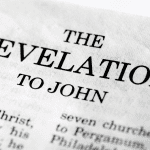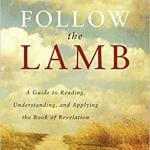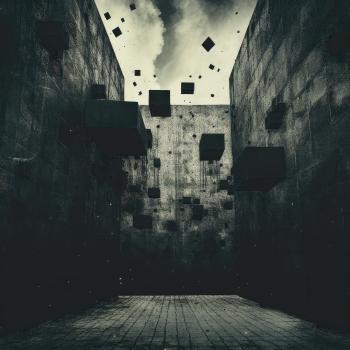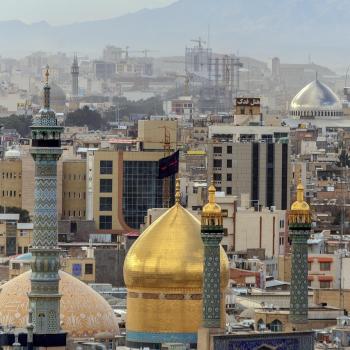
We all enjoy the movie or the book when the bad person–whether it be Voldemort, Darth Vader, Norman Bates, Thanos (was he a bad guy?), or Sauron—finally receives the justice due them.
What we don’t like is when they get away with it.
I don’t know about you but I did not like the first Hunger Games movie (no, I hadn’t read the books—my ADD does not allow me to read such books). When I left the theatre I was amazed that my wife and my kids loved the movie (yes, they had read the books).
Movies are supposed to end with justice. And the first Hunger Games movies did not end well!
My wife and kids were kind enough to tell me that there will be justice after the third movie—which was going to be two parts.
I remember thinking, “You mean I have to wait for them to make how many more movies before we get justice?”
Why does God allow suffering?
A common criticism against Christianity revolves around the question of why God allows so many people to suffer.
And while I don’t have the answer to this question (I too wonder why God allows so many children to die from hunger and the lack of drinkable water), I do believe we have a bit of an understanding.
Over the last few posts (Is God a moral monster?: The book of Revelation and Wrath pt 1; Is God a moral monster?: the book of Revelation and Wrath pt 2), I have been addressing how we should read the book of Revelation.
NB: Warning: This blog may become increasingly bad for your health. Continued exposure to posts on this site may produce fits of rage which have been known to increase blood pressure levels and all the health risks that entails.
If you are looking for a blogger that will pander to your wishes, this is not the correct site. Please close your browser immediately.
If you or a loved one need help detoxing from this blog, please call a professional counselor. I am not able to help with that.
I would begin by affirming that God is just and that His justice requires that He punish those who cause injustice. And the book of Revelation certainly takes us there.
It is my conviction, however, that we have been misreading Revelation if think that this is what the whole book is about.
Unfortunately, it is commonly believed that the book of Revelation depicts God’s end times wrath as if it comes in stages. The justification for this reading is that this supposedly reflects God’s mercy and his kindness.
So, let me get this straight. God kills some, creates massive famines, sends pestilence and diseases to the world, and even unleashes demonic hordes on those who survived because He loves them so much. What??
That doesn’t sound like love to me. And I don’t know a whole lot of people who think it does.
If we conclude that the Seven Seals, Seven Trumpets, and the Seven Bowls depict God inflicting wrath upon the unbelieving world, so that those who survive may repent, then, as I have said in the previous posts, God is a moral monster, who, at the end of the day, is no better than any other despot. Um, Hitler for 1000, please. How about God for 400?
In the book of Revelation, the doing of violence in order to bring about worship is precisely what the Beast (which represents “empire”) does. The Second Beast causes, “whoever does not worship the image of the [First] Beast to be killed” (13:15).
There is another problem with using violence to coerce obedience. If obedience is gained because of the fear of more violence against oneself, then free will has disappeared. David Barr notes, “If you put a gun in someone’s back and demand their wallet, you cannot later claim that they gave it of their own free will. The choice between dying and giving up your wallet is not a real choice.”[1]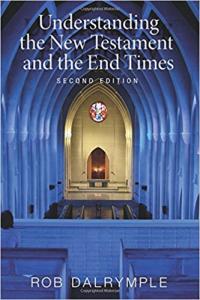
How then shall we read the book of Revelation?
I believe that the book of Revelation depicts God’s love for all of humanity and for His creation. The narrative of the book of Revelation centers on the Cross!—which is the epitome of love.
When it comes to the “wrath” parts of the book of Revelation (in particular in the Seven Seals and the Seven Bowls), it is my conviction that the devastation and destruction that the book of Revelation depicts are actually what results from humanity’s continued rule. (I will address this further in future posts).
In other words, the book of Revelation is letting the people of God (those in the 7 churches) know that the end will not come right away, so they need to be prepared.
Why not? Why doesn’t He bring the end now?
I believe that the reason why God allows humanity to remain in power, even though their continued rule brings devastation, destruction, and death is because of His love for the nations. That is, God allows the nations to remain in power—even though their reigns bring devastation, destruction, and death—because He desires for the nations to come to repentance and He is giving them time to do so.
When God does finally bring justice to the world, that will mark the end of human history (no I am not going to debate or even discuss the millennium. Feel free to modify what I just said in accord with your beliefs on the millennium).
Although I would acknowledge that John’s central concern was for his reader/hearers to remain faithful in the midst of Rome’s oppression and its seductive efforts to lure the people of God to compromise, John’s concern was not for their sake alone.
Instead, he recognizes that the people of God must remain faithful because their faithfulness is the means by which humankind may be spared from the final judgment.
A central aim of the book of Revelation is to set forth God’s desire for the nations to be redeemed. And, it is not wrath that leads the nations to repentance, but love. (If it were wrath, then God would be a moral monster, no better than any other despot).
We should not be surprised by this. After all, God is love (1 John 4:8).
With all this being said, I find it incredulous that scholars and students of the book of Revelation approach the text as though its primary message was one of divine judgment.
Is it not fundamental to the New Testament that the kingdom of God comes not through power, but through love?[2]
It is remarkable to me that many Christians try to hold in tension the conviction that God is love and that He is also an angry despot who is ready and willing to inflict suffering on people as a means of driving them to repentance.
If I am right, the question becomes, “What do we do with the Seven Seals, the Seven Trumpets, and the Seven Bowls?”
I thought you would never ask.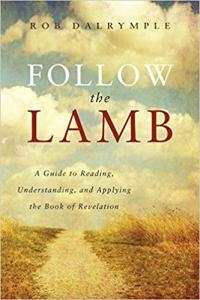
NB: you might ask why I put in a disclaimer warning you about the negative effects of constant exposure to this site. It is because I think Jesus is really dangerous. And I believe that when we come to wrestle with Jesus and what He really said, it is dangerous. You will either not like what I might have to say at times. Or you will realize that following Jesus is actually really dangerous.
To be continued . . .
Our goal is to keep these posts free of charge. I do not intend to ever hide them behind a paywall. I can only do this if those of you who have been blessed by them and can afford to give ($5, $10, $25, or more/month) do so. You can give a tax-deductible contribution by following this link.
Please share this post and let others know about determinetruth.
If you wish to view this blog on your smartphone through the Determinetruth app simply download the “tithe.ly church” app on your smartphone and insert “determinetruth” as the church name you wish to follow. Once it is loaded, simply click on the “blog” icon and it will automatically load.
If you would like to have Rob speak at your church or organization in person or via Zoom, please let us know by filling out the contact info on the Contact me tab on this site.
[1] Barr, Tales, loc 4924.
[1] Barr, “Violence,” 403.
[2] though we might say that love is the means through which God manifests his power.


